Английский язык для специальных и академических целей: Международные отношения и зарубежное регионоведение. Часть 1 - [22]
| 3 | No free man can be seized or imprisoned without charges | |
| 4 | Only adult heirs must pay the inheritance tax | |
| 5 | Taxes can't be raised without the barons' consent | |
| 6 | You couldn't be forced to build bridges | |
| 7 | Every man has the right to a fair trial | |
| 8 | The king can't force a widow to marry against her wish |
Watch and listen to identify emotions.
1. What feeling do the rebels demonstrate at their first meeting? Second (with the Bishop of Canterbury)?
2. Who do you think was the leader of the rebels? Can you identify him by his manner of speaking?
3. What emotions did King John feel when he first heard of the rebels approaching London?
When he was signing the Charter?
Logical thinking (LT) is an intellectual skill which is equally vital for both a speaker and a writer who aim to present a convincing case for their opinion. Flaws in LT can seriously weaken one's position in a debate or in a piece of writing, so it's time to have a closer look at what they are and how to avoid them.
Read the extract from the book ‘Plato and a Platypus Walk into a Bar. Understanding philosophy through jokes' by Thomas Cathcart and Daniel Klein (chapter “Logic”). What are the main tools of logical thinking according to the authors?
Inductive logic reasons from particular instances to general theories. [.] If you observe enough apples falling from trees, you will conclude that apples always fall down, instead of up or sideways. You might then form a more general hypothesis that includes other falling bodies, like pears. This is the progress of science.
In the annals of literature, no character is as renowned for his powers of “deduction” as the intrepid Sherlock Holmes, but the way Holmes operates is not generally by using deductive logic at all. He really uses inductive logic. First, he carefully observes the situation, then he generalizes from his prior experience, using analogy and probability, as he does in the following story:
Holmes and Watson are on a camping trip in the middle of the night. Holmes wakes up and gives Dr. Watson a nudge.
“Watson,” he says, “look up in the sky and tell me what you see.”
“I see millions of stars, Holmes,” says Watson.
“And what do you conclude from that, Watson?”
Unit I. UK: from Empire to Democracy
Unit I. UK: from Empire to Democracy
Watson thinks for a moment. “Well,” he says,
“Astronomically, it tells me that there are millions of galaxies and potentially billions of planets. Astrologically, I observe that Saturn is in Leo. Horologically, I deduce that the time is approximately a quarter past three. Meteorologically, I suspect that we will have a beautiful day tomorrow. Theologically, I see that God is all-powers, and we are small and insignificant. Uh, what does it tell you, Holmes?”
“Watson, you idiot! Someone has stolen out tent!”
We don't know exactly how Holmes arrived at his conclusion, but perhaps it was something like this:
1. I went to sleep in a tent, but now I can see the stars.
2. My intuitive working hypothesis, based on analogies to similar experiences I have had in the past, is that someone has stolen our tent.
3. In testing that hypothesis, let's rule out alternative hypotheses:
a. Perhaps the tent is still here, but someone is projecting a picture of stars on the roof of the tent. This is unlikely, based on my experience of human behavior and the equipment that experience tells me would have to be present in the tent obviously isn't.
b. Perhaps the tent blew away. This is unlikely, as my past experiences lead me to conclude that that amount of wind would have awakened me, though perhaps not Watson.
c. Etc., etc., etc.
4. No, I think my original hypothesis is probably correct. Someone has stolen our tent.
Induction. All these years we've been calling Holmes's skill by the wrong term.
***
Deductive logic reasons from the general to the particular. The bare-bones deductive argument is the syllogism “All men are mortal; Socrates is a man; therefore, Socrates is mortal.” It is amazing how often people screw it up and argue something like, “All man are mortal; Socrates is mortal; therefore Socrates is a man,” which doesn't logically follow. This would be like saying, “All men are mortal; my kid's hamster is mortal; therefore, my kid's hamster is a man.”
***
There is nothing like an argument from analogy. [...] Some have argued that because the universe is like a clock, there must be a Clockmaker. [...] this is a slippery argument, because there is nothing that is really perfectly analogous to the universe as a whole, unless it is another universe, so we shouldn't try to pass off anything that is just a part of this universe. Why a clock anyhow? Why not say the universe is analogous to a kangaroo? After all, both are organically interconnected systems. But the kangaroo analogy would lead to a very different conclusion about the origin of the universe: namely, that it was born of another universe after that universe had sex with a third universe. A fundamental problem with arguments from analogy is the assumption that, because some aspects of A are similar to B, other aspects of A are similar to B. It isn't necessarily so.
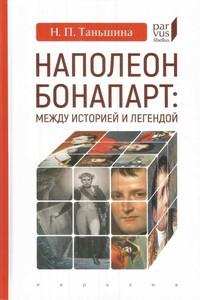
Наполеон притягивает и отталкивает, завораживает и вызывает неприятие, но никого не оставляет равнодушным. В 2019 году исполнилось 250 лет со дня рождения Наполеона Бонапарта, и его имя, уже при жизни превратившееся в легенду, стало не просто мифом, но национальным, точнее, интернациональным брендом, фирменным знаком. В свое время знаменитый писатель и поэт Виктор Гюго, отец которого был наполеоновским генералом, писал, что французы продолжают то показывать, то прятать Наполеона, не в силах прийти к окончательному мнению, и эти слова не потеряли своей актуальности и сегодня.
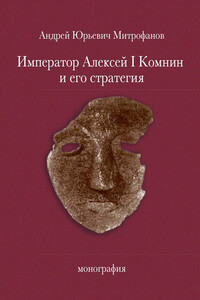
Монография доктора исторических наук Андрея Юрьевича Митрофанова рассматривает военно-политическую обстановку, сложившуюся вокруг византийской империи накануне захвата власти Алексеем Комнином в 1081 году, и исследует основные военные кампании этого императора, тактику и вооружение его армии. выводы относительно характера военно-политической стратегии Алексея Комнина автор делает, опираясь на известный памятник византийской исторической литературы – «Алексиаду» Анны Комниной, а также «Анналы» Иоанна Зонары, «Стратегикон» Катакалона Кекавмена, латинские и сельджукские исторические сочинения. В работе приводятся новые доказательства монгольского происхождения династии великих Сельджукидов и новые аргументы в пользу радикального изменения тактики варяжской гвардии в эпоху Алексея Комнина, рассматриваются процессы вестернизации византийской армии накануне Первого Крестового похода.
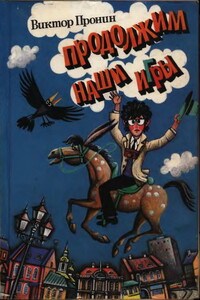
Виктор Пронин пишет о героях, которые решают острые нравственные проблемы. В конфликтных ситуациях им приходится делать выбор между добром и злом, отстаивать свои убеждения или изменять им — тогда человек неизбежно теряет многое.
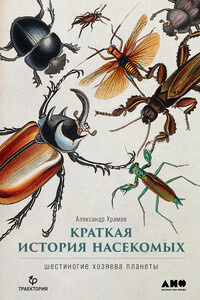
«Любая история, в том числе история развития жизни на Земле, – это замысловатое переплетение причин и следствий. Убери что-то одно, и все остальное изменится до неузнаваемости» – с этих слов и знаменитого примера с бабочкой из рассказа Рэя Брэдбери палеоэнтомолог Александр Храмов начинает свой удивительный рассказ о шестиногих хозяевах планеты. Мы отмахиваемся от мух и комаров, сражаемся с тараканами, обходим стороной муравейники, что уж говорить о вшах! Только не будь вшей, человек остался бы волосатым, как шимпанзе.

Настоящая монография посвящена изучению системы исторического образования и исторической науки в рамках сибирского научно-образовательного комплекса второй половины 1920-х – первой половины 1950-х гг. Период сталинизма в истории нашей страны характеризуется определенной дихотомией. С одной стороны, это время диктатуры коммунистической партии во всех сферах жизни советского общества, политических репрессий и идеологических кампаний. С другой стороны, именно в эти годы были заложены базовые институциональные основы развития исторического образования, исторической науки, принципов взаимоотношения исторического сообщества с государством, которые определили это развитие на десятилетия вперед, в том числе сохранившись во многих чертах и до сегодняшнего времени.
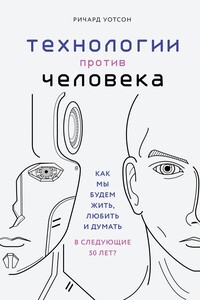
Эксперты пророчат, что следующие 50 лет будут определяться взаимоотношениями людей и технологий. Грядущие изобретения, несомненно, изменят нашу жизнь, вопрос состоит в том, до какой степени? Чего мы ждем от новых технологий и что хотим получить с их помощью? Как они изменят сферу медиа, экономику, здравоохранение, образование и нашу повседневную жизнь в целом? Ричард Уотсон призывает задуматься о современном обществе и представить, какой мир мы хотим создать в будущем. Он доступно и интересно исследует возможное влияние технологий на все сферы нашей жизни.